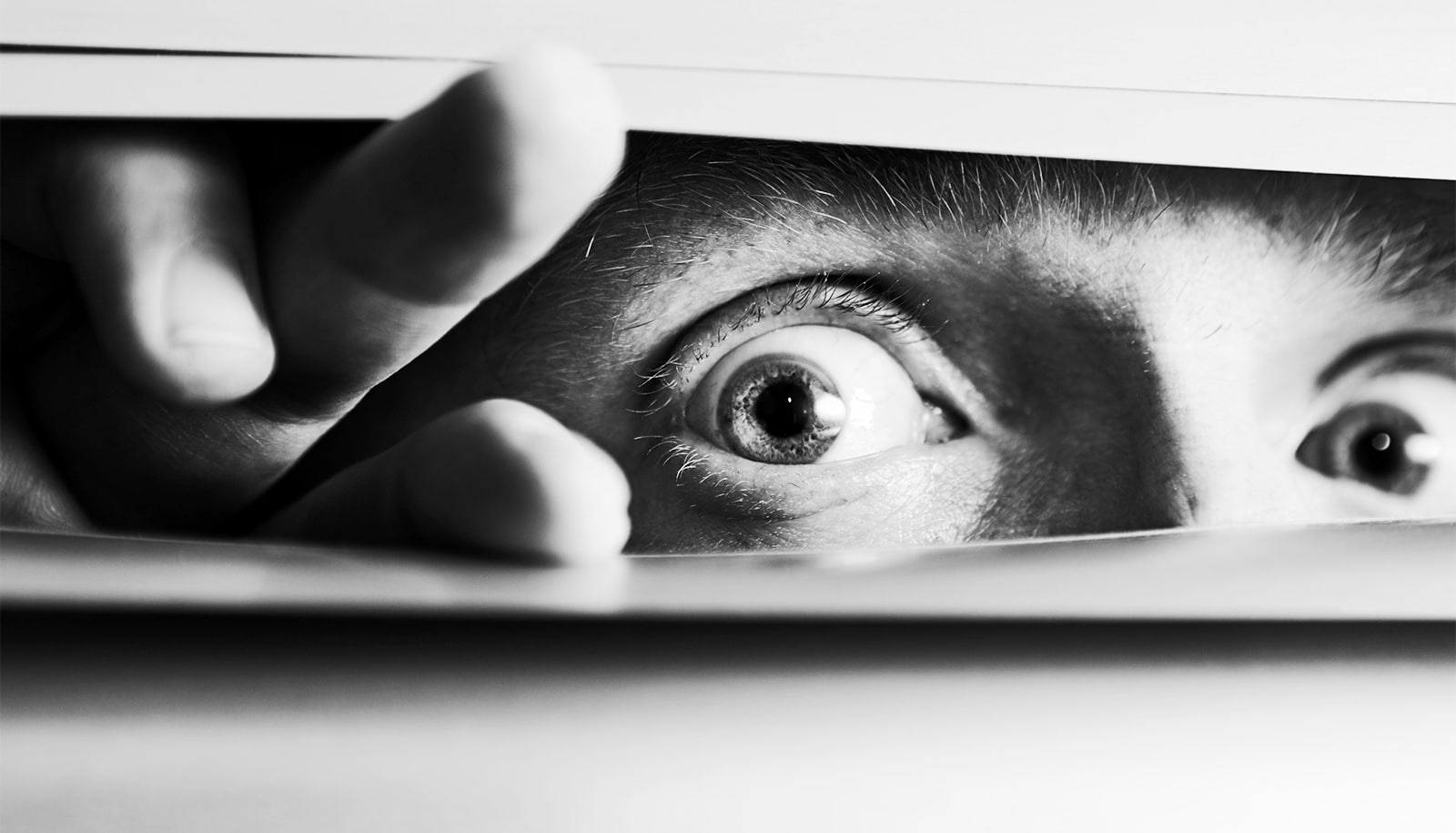From his earliest days in the White House, President Donald Trump has inspired some to muse on his perceived similarities to Richard Nixon. But it wasn’t until after President Trump fired FBI director James Comey on May 9—in the midst of an investigation into whether members of the Trump campaign colluded with the Russian government to influence the outcome of the 2016 election—that the debate came to dominate the headlines: Were we witnessing the Watergate of a new generation?
Timothy Naftali, clinical associate professor of history and public service and co-director of New York University’s Center for the United States and the Cold War, served as the founding director of the Richard Nixon Presidential Library and Museum in Yorba Linda, California, where he was tasked with telling the story of Watergate from a nonpartisan perspective and overseeing the public release of 1.3 million presidential documents and 700 hours of audio recordings.
On the 43th anniversary of the day Nixon resigned, Naftali reflects on Nixon’s legacy in the context of a new presidential controversy.
What do you make of presidential comparisons? Are they helpful? Distracting? Both?
Historians have to be careful about analogies. We can use them to ask good questions—to try to contextualize something and get a sense of whether it’s unique. Finding parallels can lead to better analysis, but analogies can also be a trap, because [if] you’re too quick to adopt them, you stop your investigation.
The analogy should be only the beginning of the process. I don’t see history as a grab bag for something that just seems like what you’re experiencing today. I see it more as a toolbox—the past might be viewed as a playbook that current political figures might use. Anybody who studied Nixon carefully—and there are a lot of us—has an unusual understanding not only of how presidencies can go wrong, but also of how presidents can misuse their power. That puts us on guard.
What similarities, if any, do you see between Nixon and Trump?
There are real differences between them, but Trump seemed Nixonian as a candidate for two reasons. One was his temperament—his tendency to lash out. Both believed they were victims, and even though they had come to be the most powerful people in the world, they had a chip on their shoulder. They blamed people and didn’t forget whatever slights they felt on the way up that slippery pole. Rather than feeling confident because they had achieved political success, they came into office feeling combative and besieged.
The other similarity that was striking was that the election involved the intervention of a foreign power. As we now know from some very important primary source documents, Richard Nixon used a foreign power to undermine an American diplomatic effort in the Vietnam War. In that case, it was South Vietnam, and it happened at the end of the campaign. We don’t have the evidence to know whether or not the Trump campaign involved the Russians. We do know that the Russians intervened in the election. Maybe they intervened all by themselves, or maybe they had some American help. These kinds of questions about the involvement of a foreign power in an election via a candidate haven’t been asked seriously since 1968.
Fast forward to the administration itself, and President Trump’s actions, as least from what we know, suggest an effort on his part to influence the investigation of Russian hacking in the campaign. What in fact did he try to do? We don’t know. But that’s yet another set of questions reminiscent of the 1970s, because after the foiled break-in, President Nixon didn’t just participate in but was at the top of the cover-up.
The goal of that cover-up was to prevent FBI investigators and federal prosecutors from figuring out that the White House had been involved in setting up [a] political espionage operation. We don’t have evidence in 2017 of “break-ins,” but what we do have is a White House that feels besieged and is facing a federal investigation, and a president who is willing to interpose himself between that investigation and the facts.
Why does temperament matter? Shouldn’t it be a president’s actions that count?
What you hear on the Nixon tapes is a lot of anger and resentment. If he were just blowing off steam, then we could say, “Oh well, he’s a sad, angry man.” But it wasn’t just venting. He would vent and then order. If that weren’t the case, it wouldn’t matter—it would have unfortunate for those working with him, but the country as a whole wouldn’t have been affected.
But when Nixon got frustrated that the bureaucracy did not implement what he wanted, his demands got irrational and impetuous. He doubled down, which led to things like an illegal investigation of Jewish Americans in the labor department. And so the student of presidential activity has to ask: What happens when a president gets frustrated? What happens when he doesn’t get his way? What can happen is abuse of power.
Within a few months of Nixon coming into office, his inner staff realized that his raging would be a problem—so his closest staff built a wall around him, to protect Nixon from himself, and to protect the country from Nixon. After the 2016 election, I wondered whether there would be anyone strong enough around Donald Trump to do the same for him, but there doesn’t seem to be. He trusts his children but they don’t have the gravitas for him to listen to them, and the political appointees around him don’t know him well enough. In that sense this administration is more undisciplined than the Nixon administration, which is one reason you’re seeing more scandals earlier—because the Nixon team kept the real Nixon from the American people a lot longer. When the public started to see the angry, dark man at the center of the system, the American people rejected him, but it took two years for that to happen.
So you don’t think Nixon’s staff would have let him tweet, had Twitter existed back then?
Nope. But they didn’t stop him from putting in a taping system. Of course, that was supposed to be his—they allowed it thinking that it would be secret, confidential. They never anticipated that there would be an uncontrolled leak of this information. The press knew that this man could be angry, but the real Nixon wasn’t on full display until the press got access to the tapes. They provided the deepest and most comprehensive archive of his bad behavior and dark moods.
The other thing about Nixon is that he would sit down and outline his arguments for speeches, and he did this alone. He would sit like a lawyer preparing a brief. So the idea of spontaneous 140-character eruptions for public consumption would have been anathema to him. He agonized over the words he used publicly. Privately, eruptions happened all the time and they were way more than 140 characters. Meeting with his chief lieutenants was like a therapy session for him, but the American people were never supposed to know that their president needed therapy. I can’t imagine he would share his inner turmoil publicly in the way that President Trump has.
Some observers linked President Trump’s firing of FBI director James Comey to Nixon’s firing of special prosecutor Archibald Cox. Do you think that is a useful comparison?
I wasn’t one of those who said there was a parallel. Comey was leading the FBI, a very complex organization. There were people under him running the investigation—he wasn’t running it directly. Firing Comey didn’t end the FBI investigation.
I don’t think it was the Saturday Night Massacre. What made that event so chilling at the time was that not only did Richard Nixon fire Archibald Cox, the special prosecutor, but his chief of staff Alexander Haig also ordered the FBI to seal the offices of the special prosecution force. So it looked like you were not simply changing the leader of the investigation, but that the investigation was being shut down by the president.
In this case, there was no indication that the FBI investigation of Russian hacking was shut down by Trump or that they even attempted to shut it down. A better parallel would be if Trump fires special counsel Robert Mueller.
President Trump’s tweet alluding to the possible existence of “tapes” of conversations with James Comey seemed to some to make reference to Watergate. Do you think the president intended to compare himself to Richard Nixon?
I don’t know what lessons Mr. Trump has learned from Watergate, and I’m not sure that he’s scared off by Richard Nixon analogies. In the summer of 2016, his associates were openly saying that Donald Trump was going to give a Nixonian speech at the Republican National Convention.
They drew a direct parallel to Nixon’s 1968 acceptance speech, in which the former vice president used the metaphor of law and order to describe his approach to leadership, and focused on how the country was going through a period of turmoil that required a strong leader.
The Trump team was telling the press, “you’re going to hear this again—the message worked in 1968 and it’s going to work now.” If Mr. Trump saw Nixon as a cautionary tale, I don’t think that those kind of parallels would’ve been made by his team. He does have in his inner circle people who believe that Richard Nixon was railroaded—maybe he’s picked up on some of that and believes that Nixon was the victim of a conspiracy led by the intelligence community. I have a feeling that his understanding of the Nixon era is skewed.
The way that we attach “-gate” to any presidential controversy makes clear that Watergate remains, 45 years later, the presidential scandal by which all others are judged. Do you think that will ever change? Is there anything you could imagine happening that would fundamentally change Nixon’s legacy?
“Watergate” is a catch phrase—a term for a collection of abuses and misuses and crimes. When you say “Watergate” to some people, they think of a break in and a cover up. But really it was unraveling the break in and the cover up that led to investigations that discovered all the other bad things that Nixon was doing. The totality of that misuse and abuse of power is so great it’d be hard to imagine that Nixon could ever escape it. And I think it’s important that he not escape it.
There are Nixonians who have argued that Nixon didn’t do anything that any of his predecessors didn’t do—the difference being that he got caught. I think that is a very cynical view, because it would mean that all of our presidents are criminals and corrupt. I don’t think the historical record bears that out. That our presidents are all flawed? Yes.
But has every president used power to hurt people in the ways that Nixon did? Did other other presidents approve the use of thugs to break the bones of dissenters? Did other presidents discuss using trumped up charges to arrest people so they could engage in a general amnesty that would free burglars that were working to collect political intelligence? Did other presidents participate in acquiring hush money? Did other presidents try to get people fired because of their religion? Did other presidents put in place social programming reflecting the view that there was a hierarchy of intelligence by race?
Of course, the Nixon administration does deserve credit for a number of positive and important achievements, and its legacy is complex. But Nixon himself has a darker legacy and not only do I not think he will escape responsibility. I think we’re a healthier country if we admit that some of our presidents are good and some of them are mediocre and some of them are bad.
Source: NYU



